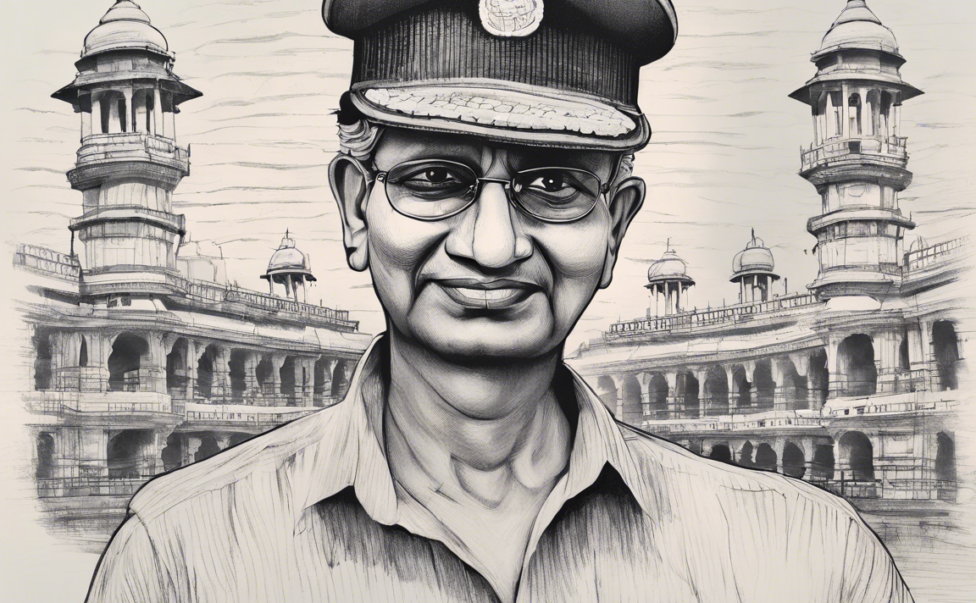Building a Corruption-Free India for Development
Introduction
Corruption has been a longstanding issue in India, permeating various levels of society and stunting the nation’s progress and development. From petty bribery to large-scale embezzlement, corruption affects every sector, including government, business, and public services. The pervasive nature of corruption has eroded trust in institutions, hindered economic growth, and perpetuated social inequalities. However, combating corruption is essential to creating a more transparent, accountable, and equitable society. In this article, we delve into the challenges and solutions in building a corruption-free India for sustainable development.
Understanding Corruption in India
Corruption in India is a complex phenomenon with deep-rooted causes. The system of patronage, nepotism, and cronyism has perpetuated corrupt practices in both the public and private sectors. Lack of transparency and accountability in governance processes have further fueled corruption, allowing for rent-seeking behavior and bribery to flourish. Additionally, inefficient and bureaucratic procedures create opportunities for corrupt practices, leading to a culture of impunity among officials and business leaders.
Impact of Corruption on Development
The impact of corruption on India’s development is profound. Economic growth is impeded as resources meant for public welfare projects are siphoned off through corrupt means. Investor confidence is also affected, as corruption adds uncertainty and risks to business operations. Moreover, corruption undermines the rule of law and erodes trust in public institutions, leading to a weakening of governance structures. Social services such as healthcare and education suffer as funds are diverted through corrupt practices, exacerbating inequalities and hampering human development.
Challenges in Combatting Corruption
Combatting corruption in India faces several challenges, including:
1. Political Interference: Political leaders often interfere in anti-corruption efforts, shielding corrupt officials and impeding investigations.
2. Weak Law Enforcement: Lack of effective enforcement of anti-corruption laws allows perpetrators to escape accountability.
3. Complex Bureaucracy: Bureaucratic procedures and red tape create opportunities for bribery and facilitate corrupt practices.
4. Lack of Awareness: Low public awareness about corruption and its consequences hinders collective action against it.
5. Whistleblower Protection: Inadequate protection for whistleblowers discourages reporting of corrupt activities.
Solutions for a Corruption-Free India
Addressing corruption in India requires a multi-faceted approach that encompasses policies, legislation, institutional reforms, and public awareness campaigns. Some key solutions include:
1. Transparency and Accountability: Enhancing transparency in government processes, budget allocation, and public procurement can reduce opportunities for corruption.
2. Strengthening Institutions: Empowering anti-corruption bodies such as the Central Vigilance Commission and the Comptroller and Auditor General to investigate and prosecute corruption cases.
3. Citizen Engagement: Encouraging citizen participation through social audits, whistleblower protection, and community monitoring can deter corrupt practices.
4. Digital Technologies: Implementing e-governance initiatives, blockchain technology, and online platforms for public service delivery can minimize corruption risks.
5. Ethical Leadership: Promoting integrity in leadership and business practices through codes of conduct and ethical training programs can foster a culture of ethical governance.
Role of Civil Society and the Private Sector
Civil society organizations and the private sector play a crucial role in combating corruption in India. NGOs and watchdog groups can advocate for policy reforms, engage citizens in anti-corruption efforts, and monitor government activities. The business community can adopt ethical business practices, embrace corporate social responsibility, and pledge zero tolerance for corruption within their operations. Through collective action and collaboration, civil society and businesses can contribute to creating a more transparent and accountable society.
Frequently Asked Questions (FAQs)
1. What is corruption, and why is it detrimental to society?
– Corruption refers to the abuse of power for personal gain. It is detrimental to society as it undermines trust in institutions, impedes economic growth, and exacerbates inequalities.
2. Are there specific laws in India to combat corruption?
– India has laws such as the Prevention of Corruption Act and the Lokpal and Lokayuktas Act to combat corruption and hold public officials accountable.
3. How can individuals contribute to fighting corruption in India?
– Individuals can report corrupt practices, refuse to pay bribes, participate in anti-corruption campaigns, and vote for ethical leaders to combat corruption.
4. What role can technology play in reducing corruption in India?
– Technology can facilitate transparency through e-governance platforms, online public services, and digital payments, thereby reducing corruption risks.
5. How important is public awareness in the fight against corruption?
– Public awareness is crucial in combating corruption as informed citizens can hold public officials accountable, demand transparency, and refuse to participate in corrupt practices.
In conclusion, building a corruption-free India requires collective efforts from government, civil society, businesses, and citizens. By implementing transparency measures, strengthening institutions, promoting ethical leadership, and leveraging technology, India can overcome the challenges of corruption and pave the way for sustainable development and inclusive growth.

